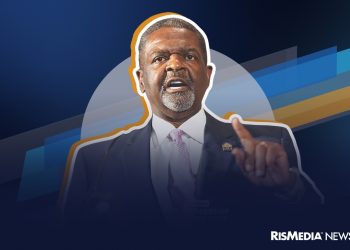 In the following session, Charlie Oppler, Special Liaison for Large Firm Relations, NAR interviews Rei Mesa, President, CEO, Prudential Florida Realty; Ed Surovell, President, CEO, Edward Surovell REALTORS®; and J. Lennox Scott, Chairman, CEO, John L. Scott REALTORS®.
In the following session, Charlie Oppler, Special Liaison for Large Firm Relations, NAR interviews Rei Mesa, President, CEO, Prudential Florida Realty; Ed Surovell, President, CEO, Edward Surovell REALTORS®; and J. Lennox Scott, Chairman, CEO, John L. Scott REALTORS®.
Charlie Oppler: Whoever said, “Hindsight is 20-20” hit the nail on the head. Real estate brokers, like other entrepreneurs today, are looking back at the past few years using the clear light of hindsight. Many of us are asking the hard questions: “what should I have done differently over the past five years to anticipate and mitigate the pain of this languishing market?” More important, we are asking ourselves, “what have I learned,” and “how can I incorporate these lessons into my long-term plans as the market tilts toward recovery?” To help us put the past into perspective, we’ve invited three seasoned professionals to the table who have not only survived through this downturn, and previous ones, but whose flourishing companies are testament to their ability to examine, innovate, and move on. Rei, let’s begin with you. Is there anything you might have done differently over the past few years?
Rei Mesa: For certain, if I had recognized earlier where the market was headed, I would have been quicker to rightsize. I would have moved faster to consolidate brick and mortar assets and redistribute resources and spending.
Ed Surovell: I hope I would have realized sooner that too many people were being paid too much. I would have kept only the best-selling agents, reined in marketing and technology expenses, and focused on agent development and sales skills.
Lennox Scott: I hear you. The focus in any market should always be to strengthen your core. Sure, it’s about prioritizing assets and spending, but it’s more about maximizing the competencies of your agents—and seeking out competency and real professionalism, especially in a challenging market.
Charlie Oppler: In other words, economy is a given, but in the end it’s more about people…ensuring that the agents who ride it out are fully equipped to dig deeper, stay confident, and do a better job for their clients than the competition.
Rei Mesa: Exactly. What sticks with me is that you can’t allow the market—any market—to influence the way you think. You have to move aggressively as though you expect the market to stay in its current state and devise new ways to make it work for you.
Lennox Scott: It’s got to not be about elevated inventory, or low appraisals or debt ceiling limits, but about each individual client—how do I win for this buyer or seller? That’s our mantra, and we are fully focused on being better and better, accomplishing more than the client expected, and that kind of strategy is what is pushing us forward.
Ed Surovell: That, of course, means using market conditions and the economy as though they were an opportunity—which they are. We’ve dug deep to acquire several pressured companies over the past few years, and we’re working now to acquire two more. You have to plan to expand as opportunity presents itself.
Rei Mesa: I agree. We look at this environment as a great opportunity for growth, both through acquisition and organically. We try to be aggressive, well organized, and totally committed to finding great new strategies going forward. But we also have to trust that the instincts that made us successful in the first place are going to stand us in good stead now.
Charlie Oppler: So I think what we’re saying is that we don’t need 8,000 square-foot offices to be successful. If nothing else, the market of the past few years has proven that smaller spaces are fine if they are operating at peak efficiency. What’s more important is a professional, fully educated agent population committed to excellent service for every client.
Lennox Scott: Absolutely. Most active agents today have all the mobile technology anyway. If they’re good, they’re using it to full advantage and don’t need to be in the office that much.
Ed Surovell: Look, the market may or may not ever get back to where it was five years ago. We’re still struggling with resource allocation today—print versus website, for instance, or hiring more support staff. But what seems to be a common thread is that we see the competencies and commitment of our agents as the most important factor moving forward.
Charlie Oppler: Some things never change, and I think that’s one of them. If the past few years have underlined anything it’s that you can work harder and you can work smarter, but people and skills still come out on top. As a broker, as a manager, as a dedicated agent, it’s a people-to-people business in any market.










